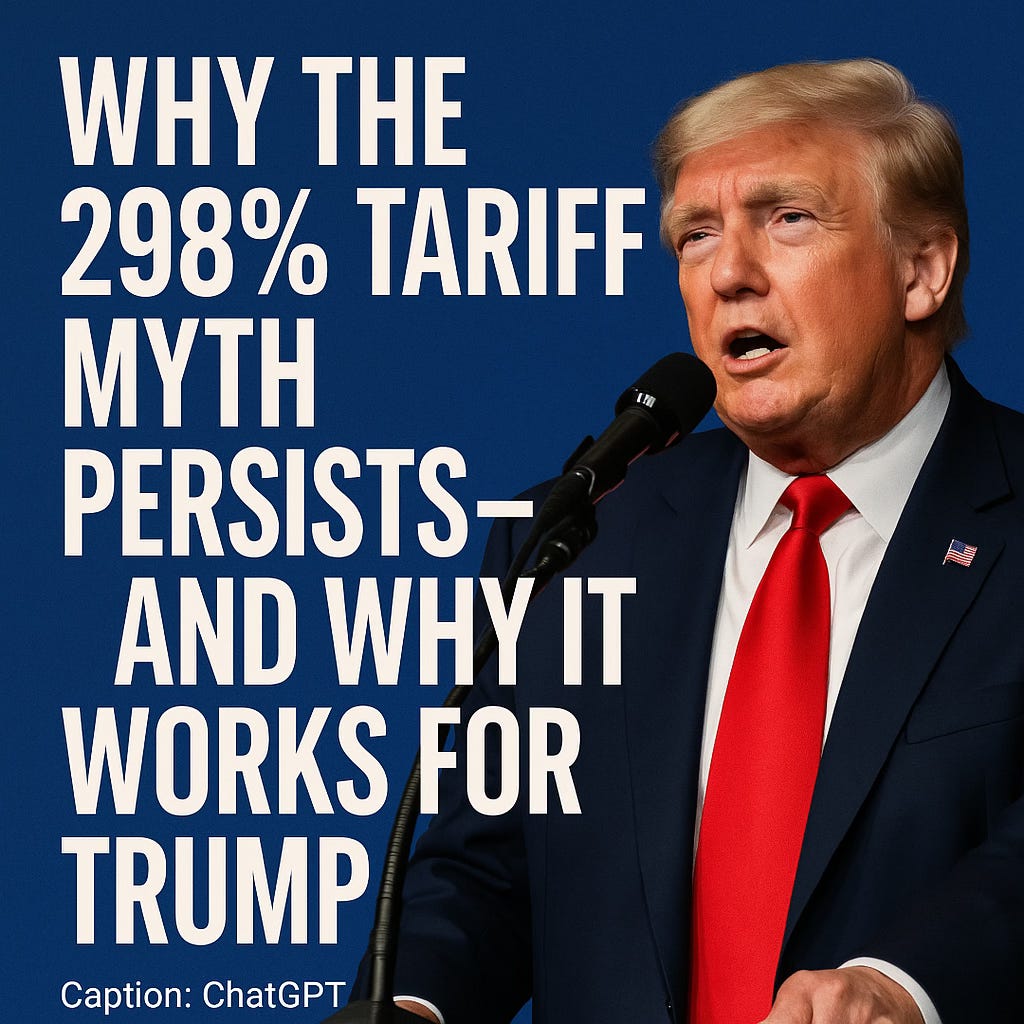Why the 298% Tariff Myth Persists — and Why It Works for Trump
TXH Series Hub: THX Pulse - Systems, Emotions & the Urgency of Now
What a kernel of truth reveals about how myths shape perception, policy, and power.
There’s a persistent claim making the rounds — that Canada imposes outrageously high tariffs, as steep as 298%, on U.S. agricultural products. And it’s true… sort of. That 298% rate applies to a very specific product (butter) and only when imports exceed a quota negotiated through trade agreements. Other products have different tariff thresholds. Some face no tariffs at all — as long as they stay within their limits.
So why does this distorted version of the truth stick?
Because it’s emotionally true in the way that matters most: it triggers the perception of loss. And in today’s attention economy, that’s a powerful force.
🧠 Prospect Theory: Why We Feel Loss More Than We Value Truth
Behavioral economics, especially Prospect Theory, shows us something crucial: people feel losses more acutely than gains. A tariff framed at 298% doesn’t register as a niche regulatory detail — it sounds like a national insult.
It activates mental alarms that say:
They’re punishing us. We’re losing ground. It’s unfair.
Even when the policy is more balanced — designed to manage quotas and protect domestic supply chains — the emotional ledger tips toward grievance. And that’s what gets remembered, repeated, and retweeted.
🧮 The Mental Math Behind the Myth
This isn’t just about economics. It’s about how people process utility. Every person runs an internal scorecard across categories like:
Security (Are we being treated fairly?)
Access (Do we have the same rights others do?)
Emotion (Does this make me feel respected — or ignored?)
Value (Are we getting what we deserve?)
Even if Canada’s quota system is legal, reciprocal, and bound by treaty, a viral post or speech cherry-picking that “298%” number triggers losses across multiple categories of perceived utility — and that’s what sticks.
💥 Trump’s Mastery of Myth and Perceived Loss
This is where Trump thrives. He knows how to take a partial truth and wrap it in emotional urgency. In doing so, he reframes the issue:
From “How do we cooperate through trade?”
To “How are they screwing us — and why aren't we fighting back?”
It’s not just messaging. It’s identity-building. Trump positions himself as the one who:
Spots the loss,
Names the injustice,
And promises to punish the offender.
Even when the facts are more nuanced, the emotional clarity he offers creates admiration—not because the policy is understood, but because the feeling is shared.
✨ The Admiration Equation: Skill as Virtue
Our minds admire two things:
Goodness (compassion, fairness)
Skill or power (strength, cleverness, dominance)
Trump leans hard into the second. When he weaponizes partial truths like the 298% claim, he’s not aiming to inform — he’s aiming to demonstrate dominance. The move becomes the message. In a world where people are tired of feeling manipulated, ignored, or powerless, Trump’s tactics feel like a way to “fight back.”
Even if the actual policy is complex, the perceived loss is simple — and he shows up as someone who won’t tolerate it.
🌀 So, What Do We Do?
Fact-checking alone doesn’t break the spell. If we want to shift these conversations, we need to:
Tell emotionally resonant stories, not just rational counterpoints.
Honor the kernel of truth, then expand the frame.
Reframe myths as selective truths that omit crucial context.
Show where real gains are happening — in trade, cooperation, and shared progress.
🧭 Reflection Invitation
What’s a claim you’ve heard lately that felt true emotionally — but didn’t quite hold up under scrutiny? What made it so sticky? And how would you reframe it?

Interpretation:
This image captures the emotional force behind Trump's rhetoric. His raised mic and confident expression reflect command over the narrative, not necessarily the facts. The bold headline and patriotic color scheme evoke a sense of urgency and nationalism, reinforcing how selective truths like the “298% tariff” myth are framed not for policy accuracy but to stoke emotional alignment. It’s less about trade — and more about identity, loss, and loyalty.


What’s a claim you’ve heard lately that felt true emotionally — but didn’t quite hold up under scrutiny?
What made it so sticky?
And how would you reframe it?